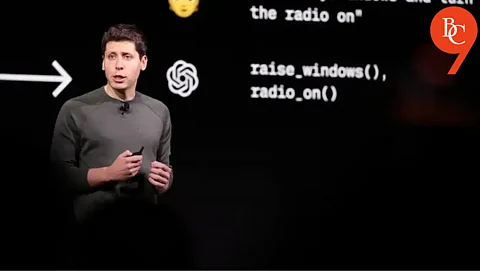

Artificial intelligence has become a daily companion for millions, but the scale of this shift is now impossible to ignore. OpenAI’s ChatGPT recently hit a staggering milestone: users around the world now send 2.5 billion prompts to ChatGPT every single day. This historic surge has sparked a pressing question in tech circles and mainstream media alike is ChatGPT poised to replace Google as the world’s dominant search tool?
To put the rise of ChatGPT into perspective: in December 2024, OpenAI reported about 1 billion daily prompts. In just seven months, that figure has more than doubled, reflecting explosive adoption worldwide; especially among students and professionals seeking instant answers or creative help.
Out of these billions of prompts, the United States alone accounts for roughly 330 million daily queries, illustrating ChatGPT’s deep integration into digital routines globally. India is another huge contributor, with the app frequently topping download charts in the region.
Despite its incredible growth, ChatGPT is still a clear runner-up to Google Search in raw numbers. According to Google’s own disclosures, its search engine handles around 14 billion queries every day, totaling over 5 trillion searches a year. While ChatGPT’s billions are substantial, Google remains more than five times larger in daily activity.
However, the fact that a tool less than three years old now processes about one-fifth of Google’s daily search volume is remarkable; especially considering Google has spent decades building its dominance.
ChatGPT’s influence is particularly strong among younger audiences and students. Unlike traditional search engines which usually deliver a list of links and ads; ChatGPT offers direct, conversational responses and maintains context for follow-up questions. Many students cite ChatGPT as their “AI tutor,” turning to it for help with essays, research, or quick learning, which is reshaping how digital information is consumed.
Some professionals now use ChatGPT as their first stop for brainstorming or quick answers, while only relying on Google for real-time news, deep research, or when seeking a broader set of sources.
Interestingly, Google is not standing still. The tech giant has responded by developing AI Overviews and conversational features in its own search engine, blurring the lines between search and chatbots. Meanwhile, other AI search tools like Perplexity are also gaining ground, especially in India and among tech-savvy users.
Whether ChatGPT will ever fully overtake Google remains uncertain. For now, each serves distinct user needs: Google for rapid, comprehensive web searches and breaking news; ChatGPT for explanations, creative brainstorming, and context-aware conversations. The surge in daily prompts shows just how fast user preferences are evolving.
